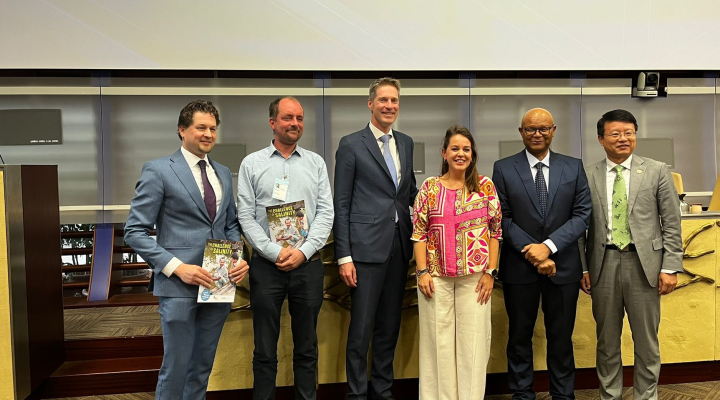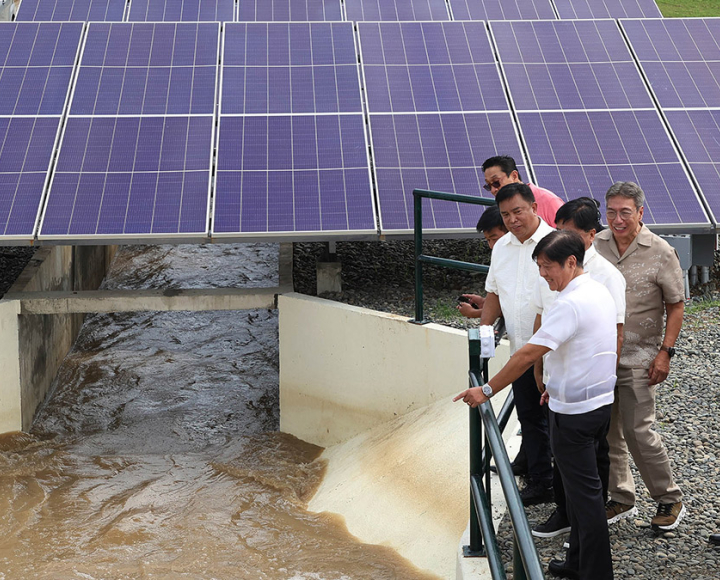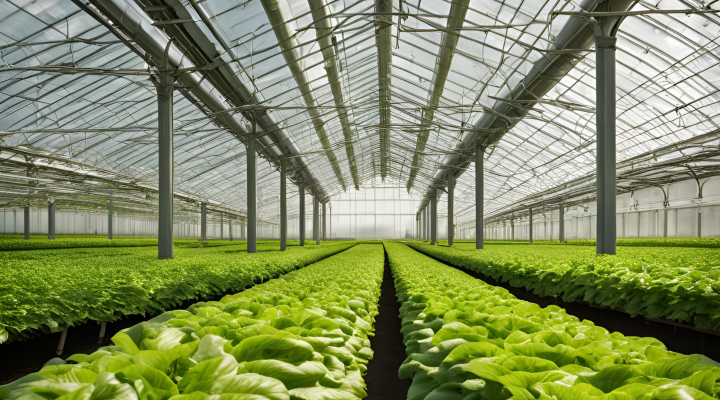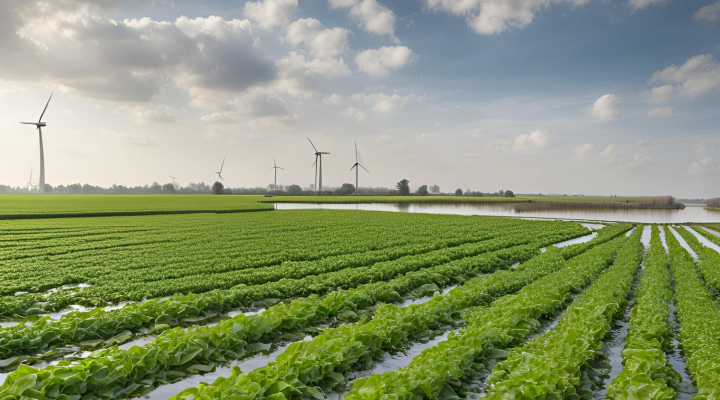Inspiration guide provides practical ideas on saline farming
The Inspiration Guide on Saline Farming provides ideas, tools and practical information for farmers, food producers, and food processors. The guide was launched within the SalFar project and is based on on-the-ground experiences and research in the North Sea Region.
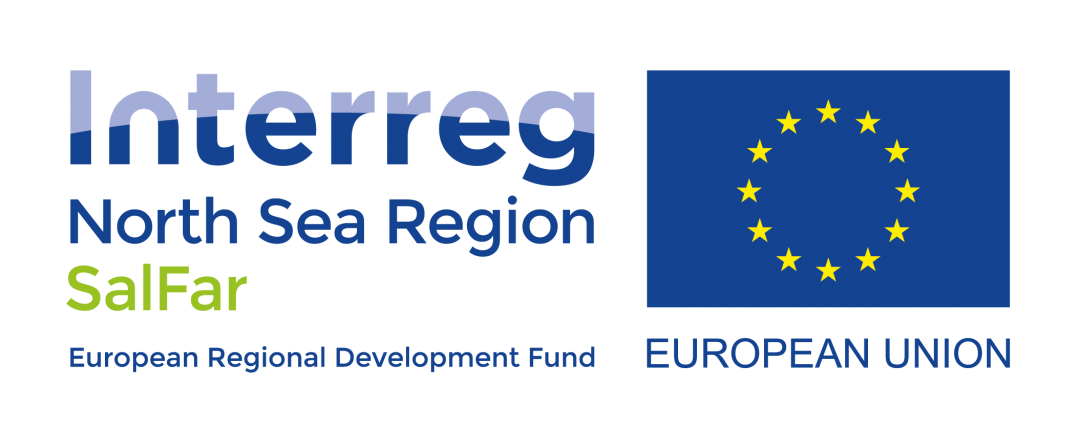
The new guide on saline farming presents knowledge gained over five years by a multi-disciplinary team from The Netherlands, Belgium, Germany, Denmark, Sweden, Norway and The United Kingdom - the seven countries that make up the North Sea Region (NSR). It pulls together knowledge on saline farming from the farming community, farmers, farming advisors and other interested parties and summarises the lessons learned in the SalFar project.
Green business strategies
Climate change is having an increasing effect on food production. Flooding of farmland near the sea is becoming more frequent and, in many places, groundwater is becoming more saline. Rising sea levels are an important factor in increasing salinisation of arable land and this is a growing challenge. Globally, about 1.1 billion hectares of soil is salt affected. To this, each day, worldwide, an area equivalent to 2,800 football pitches, 2,000 hectares of arable land is lost through salinisation.
In order to reduce the impacts, participants in the SalFar project look for alternative ways of production in agriculture, alongside other large economic players. As a highly important sector in all the countries of the NSR, agriculture could contribute significantly in developing green business strategies and fostering environmental protection, alongside economic growth.
The SalFar project, part of the Interreg cooperation programme co-funded by the European Union, aims to promote resource efficiency by (re)using degraded farmland and reducing fresh water consumption. Ten open field labs will be set up in each participating region to demonstrate innovative methods of farming on saline soil with natural adaptation processes in plants and crops. "Thinking green” in this project means a real change of perspective in farming and food producing, a change in the behavior of food consumers, re-thinking water management on authority level and changing policies on environment and agriculture in coastal areas.
Practical guide
The information in this new guide has been gained in a variety of ways: practically, by farmers and other producers growing crops in saline conditions; by scientists and technicians analysing the results of scientific experiments and by laboratory research. The potential for saline products has been explored by restaurateurs, chefs, cooks and food enthusiasts who have been experimenting - using the products - often in new and interesting ways.
Knowledge partners outside the network have also been reached out to. It is hoped that this material will inspire, encourage and guide readers into exploring the possibilities inherent in saline farming, apply it to their specific conditions and offer some ideas for developing new market opportunities.




